If you’ve ever bought a sad, green, hard pineapple, chances are you’ve googled “how to ripen a pineapple“.
Well, google no more because I’ve got the low-down right here.
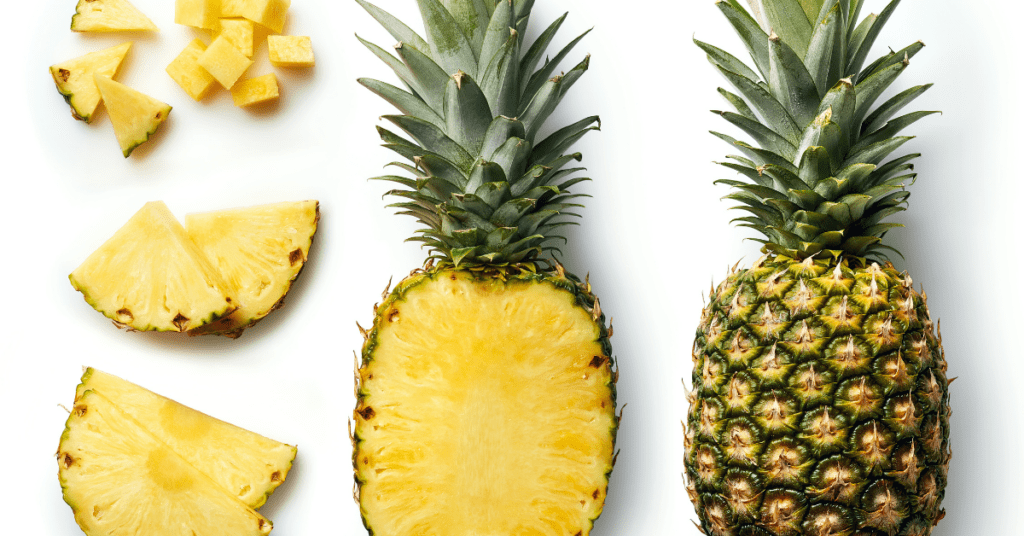
Pineapples are undoubtedly my favorite tropical fruit. Not only are they sweet and juicy, but they’re also great for the body.
This pine-cone-looking delight is loaded with vitamins and antioxidants. It can aid in indigestion and boosts your immune system.
Oh, and by the way, it’s extremely low in calories – just 82 per cup. Which is great, because these guys are so addictive to munch on…
…when they’re ripe, that is.
But that begs another question: how to tell if a pineapple is ripe?
How to Tell If a Pineapple Is Ripe
Pineapples have a fragrant aroma. But it’s that sweet-smelling goodness that sometimes fools us into believing they’re perfectly ripe.
The thing is, we can’t count on scent alone.
If you’ve ever fallen victim to a seemingly ripe piece of pineapple, you know exactly how sour and irritating it is to your throat.
I wouldn’t want you to be fooled by this sneaky fruit again, so I’ve created this simple guide.
Not only am I going to teach you how to pick the best pineapples, but I’ll also offer some tips on how to ripen them faster.
That way, you’ll never have to eat an unacceptably tart pineapple ever again.
And to answer the question: ripe pineapples are totally yellow, kind of soft, and pretty heavy.
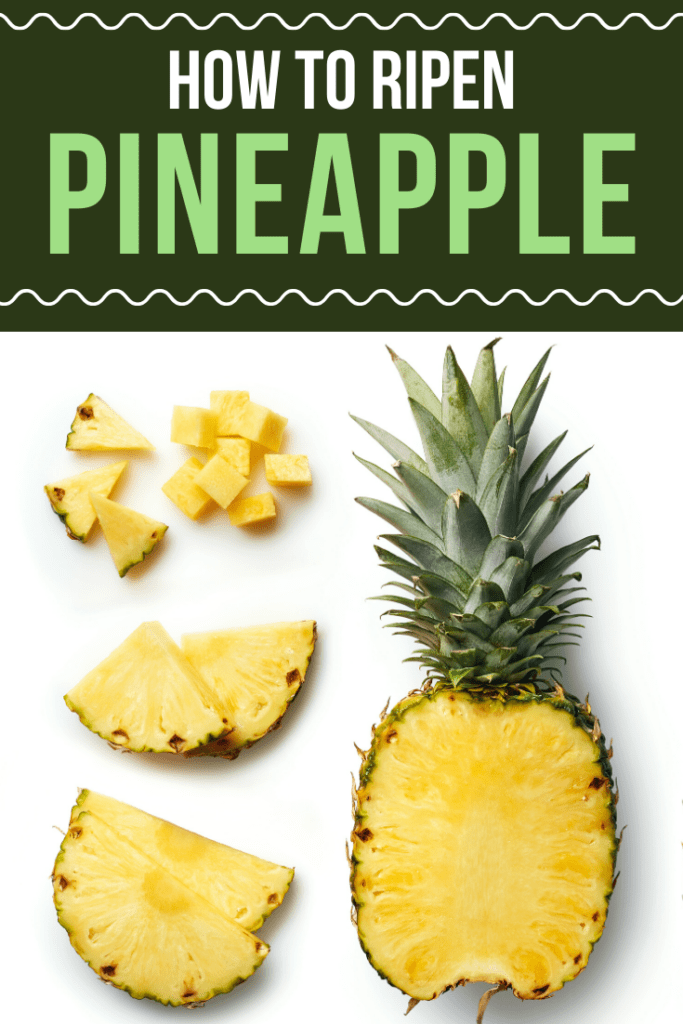
How to Select the Best Pineapples
In a see of fruits, it’s hard to find the right one. Luckily, there are some simple ‘tests’ you can perform right in the produce aisle.
Check the Base
With pineapples, it’s all about the base.
The first thing you need to do is check the bottom. You’ll want to see an orange or yellowish hue.
So if it’s looking green, put it back on the shelf.
Give It A Squeeze
Next, check the firmness of the fruit.
You want a body that’s firm but supple at the same time. Give it a gentle squeeze to check.
If it’s tough, it’s no good.
Assess the Color
Now, the skin color.
A nice bright yellow shade is what you’re looking for, not a green one.
Also, check for discoloration on the skin and leaves. If it’s got dark brown stains, walk away.
As for the size, you’ll want something bigger. No special explanation here, other than the fact that bigger pineapples will give you more flesh to eat.
Smell the Fruit
Last is the smell. You want a fruity and fragrant scent coming from the pineapple.
So if it gives off even just a little bit of foul odor, don’t get it!
The best way to check is to sniff the base. A strong fragrant smell most likely means the pineapple is already ripe.
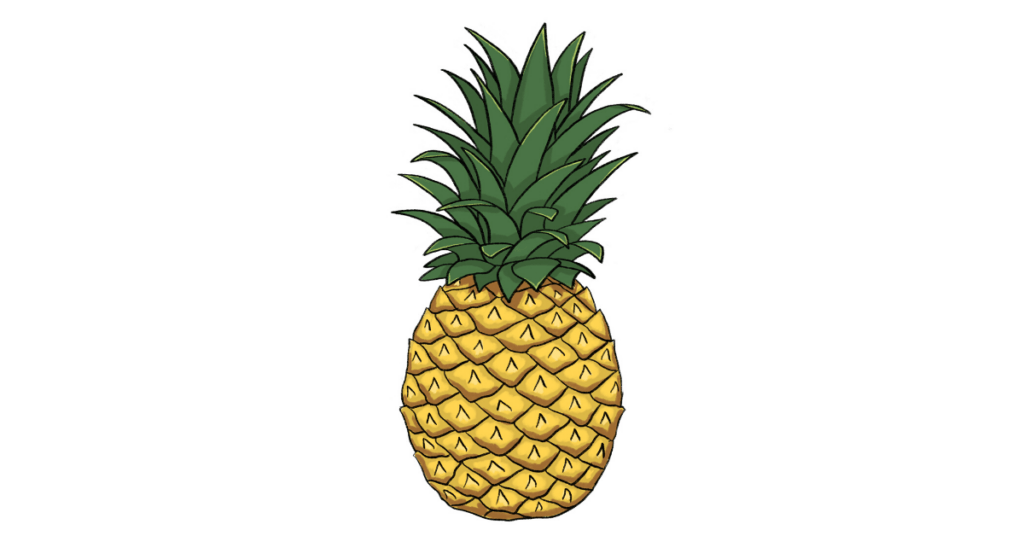
How to Ripen Pineapple
Whether you are going to eat them as is, add them to coleslaw, or top your pizza with them, you don’t want your pineapples tasting sour.
The thing about pineapples is that, unlike other fruits, once they’ve been plucked they won’t ripen on their own anymore. This is because their source of sweetness is the stem. So once you cut out the stem, there’s no way the fruit can produce its own sugar.
And that’s why it needs human intervention to make it sweeter. Fortunately, there are several things we can do to help.
Here are some proven methods that will ripen your pineapple:
- Store the pineapple with other fruits. Specifically with fruits that produce ethylene, such as bananas, tomatoes, and apples. Ethylene is a hormone that helps ripen fruits, so exposure to it will help pineapple mature as well.
- Place the pineapple in a polybag or any clear bag. Leave it at room temperature for a few days, or until it ripens. You’ll see a significant difference within a day.
- Store the pineapple upside down. The leaves should be at the bottom and the base exposed. The idea is that if the pineapple still has any remaining starch left in it, it will be located in its base. Storing it upside down helps the sugar in the base to spread faster and more evenly.
- Bury the pineapple in rice. This will help it ripen faster.
Now, just in case you don’t have enough time, or can’t wait to eat your pineapple any longer, there are ways to make it sweeter through cooking. Here are some ideas:
1. Grill them. This will caramelize the sugars in the fruit, making it sweeter.
2. Bake them in the oven. It’s the same concept as grilling – it brings out the sweetness in the fruit. You can top the slices with brown sugar to help sweeten them even further.
3. Simmer them. It will neutralize the bromelain in the fruit, a.k.a. the enzyme that gives you that irritating feeling on your tongue and mouth when you eat it.
Place the chunks in a saucepan and cover them completely with water. Bring the water to a boil over medium-high heat. Reduce heat to low and simmer for 10 minutes. Drain the liquid. Cool the fruits before you serve.
How to Store Pineapples
Whole Pineapples. Store your pineapple in the fridge and it can last for up to 6 months. Do not freeze it!
Cut Pineapples. Don’t leave them at room temperature for too long, because it might cause them to ferment. Store them in the fridge to help them last longer, about 3-4 days.
However, even in the fridge, they will start to brown after a few days. This inevitable phenomenon is called enzymatic browning. To slow down the process, you can coat the pineapple slices with lemon or orange juice.
Be sure to wrap the slices in aluminum foil or store them in an airtight container to avoid them absorbing the scent of other items in the fridge.
You can also freeze cut pineapple as well. It will keep well for a long time, but its quality will start to decline after 6 months.
To prepare for freezing, slice into pieces and place them in a single layer on a baking tray. Don’t let the pieces touch each other. Let the slices freeze, and then transfer them into a freezer bag or airtight container.
Tasty Pineapple Recipes to Try
Paula Deen Pineapple Casserole
Pineapple Dream Cake
Pineapple Angel Food Cake
Duncan Hines Pineapple Upside Down Cake

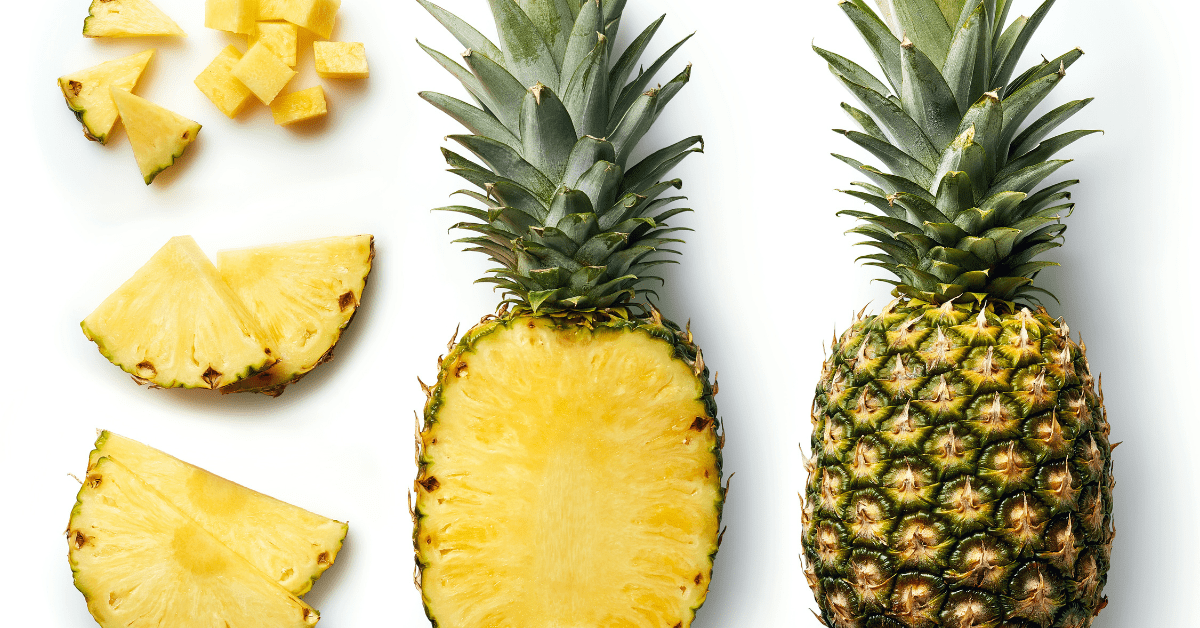
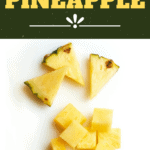




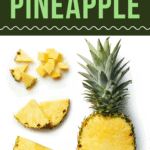


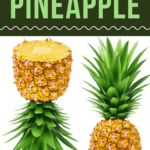

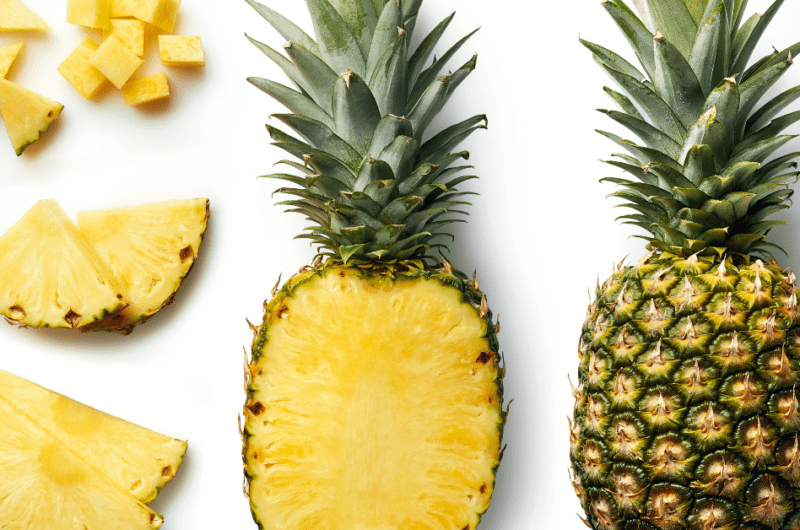
Nice Info . Just started vegi and fruit ninja smoothies daily with lots of fresh pineapple.
Thanx again